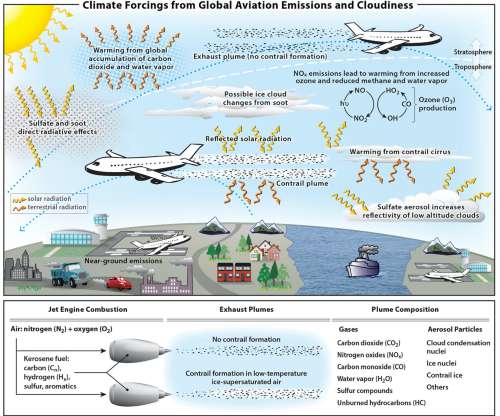Study: 2/3 of aviation climate impact due to emissions other than CO2
Green Car Congress
SEPTEMBER 6, 2020
of the human-made climate impact; two-thirds of this impact are caused by emissions other than CO 2 , according to a new study by researchers in Europe and the US. This new study is based on a thorough review of a decade of research on aviation emissions. Aviation accounts for 3.5% —Marianne Tronstad Lund, co-author.

















Let's personalize your content